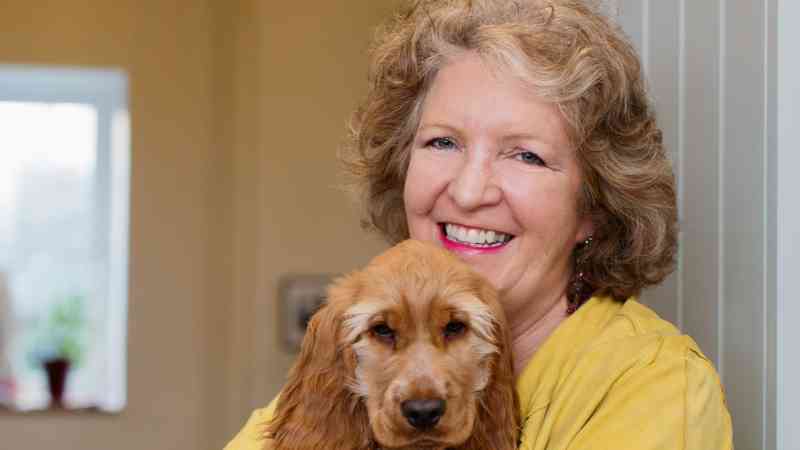How to divide assets fairly if you divorce in your 60s
When Helen Garlick went through a divorce in her late fifties after 24 years of marriage, she hoped it would be straightforward. She and her husband were both lawyers and ran a law firm; he is a commercial litigator and she is a divorce lawyer and mediator.
But despite helping hundreds of other couples through their divorce, they found their own a challenge.
They had prioritised paying into his pension for tax efficiency while Helen had taken some career breaks after the births of their three children, so his pot was much larger than hers. When it came to divorce, he said he did not think that his pension should be part of the marital assets that were to be divided and also asked for more than half of the overall assets.
“My husband had always talked about his pension being our pension, until it came to the divorce — then suddenly it became his pension,” Garlick, 66, from Devon, said. “Pensions come more sharply into focus as you see retirement on the horizon.”
She had to withdraw the 25 per cent tax-free sum from her own smaller pension to pay the legal costs of getting a fair split of his pension and thinks that anyone divorcing in later life should seek financial advice.
There can be hidden penalties that should also be considered in a financial settlement. For example, if your spouse has been the lead person on the car insurance, and you’re an additional driver, you won’t have a no-claims record and future insurance will be more expensive.
“It’s really important to get some expert help. There can be hidden costs that bite you so everything needs to be considered,” Garlick said.
While overall divorce rates are at their lowest in 50 years, separations among older couples are on the rise. The divorce rate was 6.6 per 1,000 of the married population in 2022, not far off the 5.9 per 1,000 in 1971. However, the number of women divorcing aged 65 and over went up 38 per cent over the ten years to 2015 while the number of men divorcing aged 65 and over went up 23 per cent.
Experts say the “silver separators” trend continued over the next decade. Higher life expectancy means that anyone over 60 now is likely to live into their eighties, and people don’t want to be stuck in an unhappy relationship for what could be another 20 years.
“People start thinking about separation and divorce in their late forties and fifties as children leave home. Thoughts about retirement and ‘is this really the rest of my life?’ hit,” said Rachel Fisher, a partner at the legal firm Stowe Family Law.
Sarah Woodward, a divorce coach, said she is seeing more clients aged over 50. Most are women and they are the ones making the decision to end the marriage. New “no-fault” divorce laws introduced in 2022 have also made it easier for married couples to separate without having to cite a reason such as adultery or unreasonable behaviour.
• How to cut the cost of divorce
“Perhaps the children have left home and she realises that the pair no longer have anything in common or, as is increasingly the case, women have had their own successful careers and are financially independent. They don’t have to stay for financial reasons,” Woodward said.
There is much to think about when divorcing in later life and most of the considerations will be financial.
Be aware that if you are buying out your ex from the family home, or need to start again and buy a new one, you may need a mortgage. Lenders are increasingly offering mortgages beyond pension age but it can be harder to find them yourself so you may find it useful to use a specialist broker. The website unbiased.co.uk may be a starting point.
Pensions can be the biggest financial asset of a marriage — perhaps worth even more than the house. For those divorcing in their sixties, it is common for one person to have been the primary earner throughout the marriage. They are likely to have a much larger pension pot than their spouse’s, Woodward said. If the couple had intended to live on this in retirement, then sharing it out fairly in divorce can be vital for the lower earner.
A couple’s pension assets form part of the overall distribution of assets on divorce under UK law, but in Scotland, only pension savings built up during the marriage are normally regarded as marital assets.
When there is a clear sum of money that has been accrued in pensions, it is common for them to be split with the aim of achieving an equal division. So some of one person’s pension is transferred to the other person to give them their own separate pension.
• What are you entitled to in a divorce settlement?
Pension splitting is more complicated when final salary (also known as defined benefit) pensions are involved. These pensions guarantee an income each year and are tricky to value. The initial valuation or cash equivalent value is normally much lower than the true value, said Ceri Griffiths from the financial advice firm St James’s Place. “In most instances where there are these types of pensions, an actuarial report should be obtained so that they can be accurately valued,” she said.
The cheapest outcome is if a divorcing couple can reach an amicable settlement with minimal involvement from a solicitor. Kim Uzzell from Norwich, a self-employed money coach, said pension sharing can be complex even for trained financial advisers. She suggests choosing a financial adviser accredited by the Resolution group of professionals working in family law.
If you decide to get remarried, think carefully about your assets, particularly if you have children or grandchildren from your previous marriage.
Uzell said that pre-nup and post-nup agreements — once purely the domain of Americans and celebrities — are increasingly being used in the UK. Most established law firms are likely to have someone who specialises in drawing up these agreements. “They take time and cost money, but if you are entering into a new marriage, especially if you have children and grandchildren from previous relationships, pre-nuptial agreements are worth considering.”
• How to protect your children’s inheritance if you marry again
Garlick remarried in 2018. Her husband, Tim, whom she met online, has two children from a previous marriage, so said it was important to be brave and have upfront conversations about what would happen to their assets.
She suggested drawing up new wills — any existing will is usually invalidated after a marriage, so you should do this anyway.
“The chances of a second marriage surviving are statistically lower than a first marriage,” Garlick said. “Be clear and upfront about how your money will be protected and keep the lines of communication open between you, your new partner and your combined children about what will happen in the future.”




Post Comment